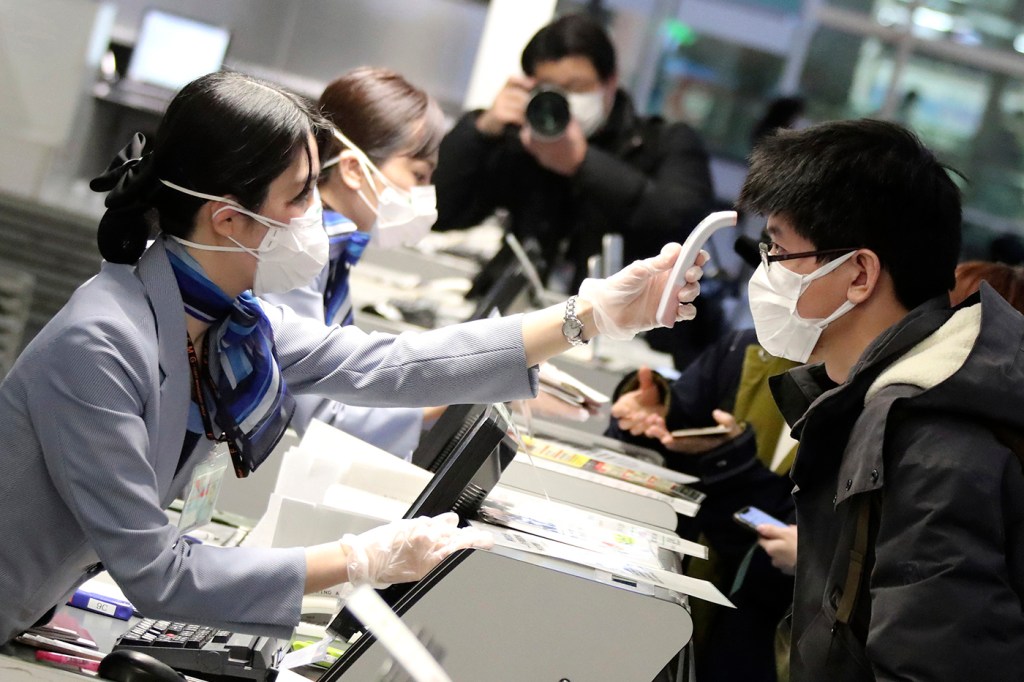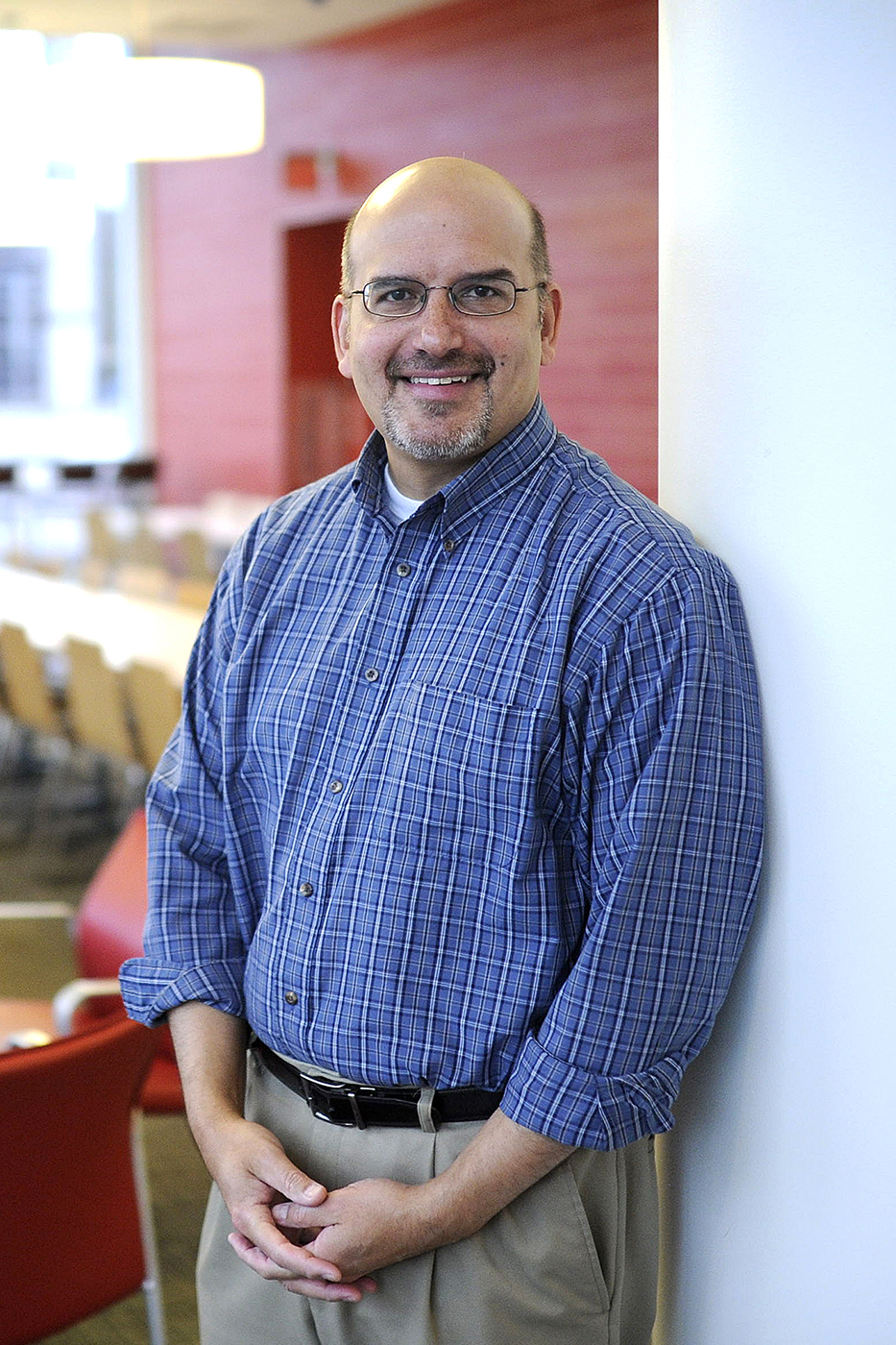Here’s what you need to know about the novel coronavirus outbreak

The novel coronavirus outbreak has infected more than 30,000 people in China and more than 800 have died, which is more than the number of fatalities from the SARS epidemic in the early 2000s.
The virus, designated 2019-nCoV, has spread to at least countries outside of China, prompting infectious disease experts to discuss the possibility of a pandemic. The first death outside of China from the disease was recorded on Sunday in the Philippines.

Neil Maniar is professor of practice and director of the Master of Public Health program. Photo courtesy of Neil Maniar
Inevitably, some countries will be more severely affected by the outbreak than others, says Neil Maniar, a professor of practice who directs Northeastern’s Master of Public Health program. He says ensuring that people are properly educated about the illness, and providing them with resources to protect against other viral illnesses, will be critical to reducing the risk of transmission of the coronavirus.
“One of the key things is really investing in frontline personnel who are able to respond to these outbreaks, who are able to respond to patients who are in need of care, and who are able to educate communities about what can be done to prevent these types of illnesses, and to protect themselves against these illnesses,” Maniar says.
Dr. Shan Mohammed, a clinical professor of health sciences at Northeastern, says that nations around the world will need to work together to combat an infectious disease that will likely have social, political, and economic impacts. An international response is necessary to contain the coronavirus and to avoid disruption in trade and service delivery.
“I think [countries] are going to have to collaborate across industries and across sectors because there are multiple issues at hand here,” Mohammed says.
“There is no vaccine yet, but if, for instance, there were some novel treatment approach, [we need to think] about how do we deal with collaborative efforts to reach those who are most vulnerable?”
Here are some other insights on the coronavirus outbreak, and what you need to know about it.
How do I know if I’ve been infected with the coronavirus?
Until you go to the doctor, you won’t. That’s because many of the symptoms—fever, cough, shortness of breath—mimic the symptoms of the flu or the common cold, say Maniar and Mohammed. Some people feel the symptoms right away, whereas for others it takes a week or longer after they’ve been exposed.
“That’s something that is similar to what we’ve seen with some of the other types of viral outbreaks like this,” says Maniar.
You mean this has happened before?
The disease takes its name from a family of viruses known for containing strains that cause potentially deadly diseases in mammals and birds. Remember the Middle East Respiratory Syndrome, or MERS, outbreak in 2012? Different strain, but same family, says Maniar.
What is the treatment for coronavirus?
It’s the same as treating a cold or the flu. Rest, pain relievers, fluids, minimize contact with others. There is currently no vaccine to prevent infection, and antibiotics don’t work against viral infections.
“There are at least three biotech companies that I know of that are rapidly trying to find some way to treat this,” says Maniar. “[But] anything is probably at least a year away from what I’ve read.”
What does it mean that coronavirus is likely to become a pandemic?
“Pandemic” refers to the worldwide spread of the disease. As of Monday, cases had been confirmed in at least 23 countries, and the first death outside of China was recorded in the Philippines. But, that’s not in and of itself cause for concern, says Maniar.
“If we want to talk about pandemics, influenza is a pandemic we should be talking about,” he says. “When we look at the number of cases of influenza just in [the United States], the number of deaths from influenza far, far, far overshadows the morbidity and mortality associated with coronavirus.”
What can I do to avoid infection?
Wash your hands thoroughly and frequently, and get your flu shot.
Those are two of the most important measures you can take to prevent not just the coronavirus, but nearly all bacterial or viral infections, especially during the winter months when the risk for those types of illnesses is higher, the Northeastern professors say.
“That means washing your hands not just after going to the bathroom or eating, but washing your hands after you cough or sneeze,” Maniar says. “And when you wash our hands, not just running them under the water for a microsecond, but to really make sure that you wash your hands for at least 20 seconds as is recommended by the Centers for Disease Control.”
How do I prevent myself from infecting others (and myself)?
Washing removes dirt and other pathogens from your hands. If there isn’t a sink nearby, use a hand sanitizer.
Avoid touching your eyes, nose, and mouth, and coming into close contact with people who are sick, say Mohammed and Maniar. And if you’re the one who’s sick, stay home.
If you have to be around people, cover your mouth when you’re sneezing and coughing. And because viruses and other pathogens tend to live on surfaces, it’s also important to wipe those down as frequently as possible.
Why is the coronavirus outbreak all the more reason to get a flu shot?
Mohammed and Maniar both emphasize the importance of the flu shot in keeping your immune system in shape so that it can more easily fight off the common flu.
“If your immune system is compromised for any reason then you are more likely to develop a more serious infection or have more serious symptoms of the infection,” says Maniar.
Do those face masks help?
As fears of the outbreak grip communities across the world, protective face masks have been growing in popularity, worn by travelers in airports and subways, as well as the average Joe picking up milk at the grocery store. The purpose of a mask is typically to prevent pathogens from getting in and then also to prevent pathogens from being released into the environment, says Maniar.

Dr. Shan Mohammed is a clinical professor and founding director of the Master of Public Health program at Northeastern. Photo by Matthew Modoono/Northeastern University
There are two types of masks to be aware of. The first is a surgical mask that you can buy from just about any drugstore. These offer limited protection, but may come in handy by reminding you not to touch your mouth, nose, or eyes, says Mohammed.
“If you are sick and you have to go out, then it’s certainly helpful to wear a mask because you are at least reducing the amount of pathogens that are being released into the environment every time you cough or sneeze,” Maniar says. “But if the goal is to protect yourself from the pathogens that are around you, and especially viral infections then it’s probably going to be limited effectiveness.”
The other type is an N95 mask, a larger and more substantial mask with a tighter seal around the nose and mouth that helps prevent 95 percent of small particles from entering the nose and mouth area. These are harder to find and tend to be more expensive.
“They’re really for people who are on the frontlines, who are designated first responders or others who are required to wear those masks to protect themselves,” says Maniar.
Should I avoid crowded public spaces?
If you’re healthy, there’s no need to avoid crowded public spaces, such as airports and subways, or the farmers market. Doing so won’t decrease your risk of being infected with the disease, say Maniar and Mohammed.
“At this point, the Centers for Disease Control is not making those recommendations,” says Mohammed.
Are quarantines going to work?
In some countries, including China and the U.S., people who have been infected by the coronavirus are being subjected to a two-week quarantine. Quarantines are nothing new; they’ve been used for thousands of years to prevent outbreaks, says Maniar. They can be beneficial in protecting the public from being exposed to an infected individual, but at the same time governments must be mindful of using this measure ethically and humanely, he says.
“There’s been plenty that has been written about the role that racism and xenophobia are playing in terms of how people are reacting to the coronavirus,” he says. “It’s important that we as public health professionals, when we respond to outbreaks, that we really focus on the science and we focus on best practices so that we’re taking the approaches that are ethical, that are humane, and the ones that we know will be effective.”
Mohammed added that it is important that quarantines and other interventions be continuously reassessed and that their impact on people’s mental health, for example, is also taken into consideration.
“How does this impact a sense of social isolation, loneliness, or mental health? I think there are multiple concerns, and we want to make sure that our approaches are appropriate to the degree of risks that we’re seeing,” he says.
Where can I learn more?
Northeastern held a discussion about the coronavirus outbreak on Wednesday, Feb. 5. Co-sponsored by the Bouvé College of Health Sciences and the Law School, the event featured a panel of speakers who discussed, among other topics, the scope of the outbreak, the public health responses that are underway, and opportunities for how the university and broader community can build an effective response. You can watch it here:
The speakers were Dr. Larry Madoff, from the Bureau of Infectious Disease and Laboratory Sciences at the Massachusetts Department of Public Health, Wendy Parmet, Matthews Distinguished University Professor of Law and the director of the Center for Health Policy and Law at Northeastern, Alessandro Vespignani, Sternberg Family Distinguished University professor and the director of the Network Science Institute at Northeastern, and Ran Cheng, president of Northeastern’s Chinese Student and Scholar Association.
Northeastern University is actively monitoring the novel coronavirus outbreak. Check here for more information. For media inquiries, please contact media@northeastern.edu.





